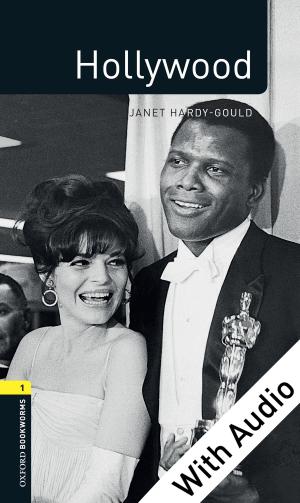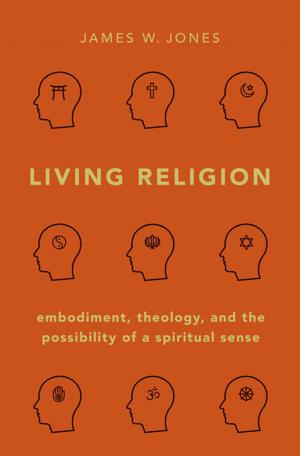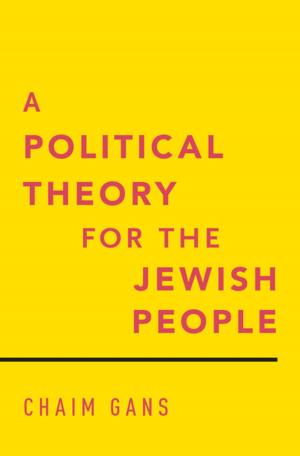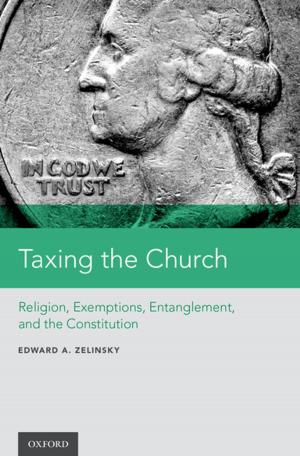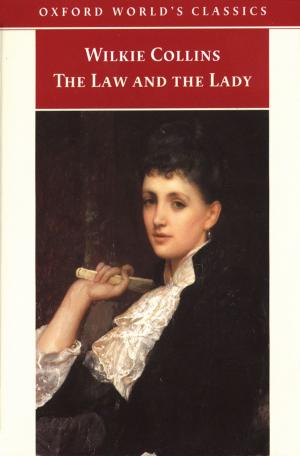Which Sin to Bear?
Authenticity and Compromise in Langston Hughes
Fiction & Literature, Literary Theory & Criticism, Black, Poetry History & Criticism, American| Author: | David E. Chinitz | ISBN: | 9780199311590 |
| Publisher: | Oxford University Press | Publication: | February 14, 2013 |
| Imprint: | Oxford University Press | Language: | English |
| Author: | David E. Chinitz |
| ISBN: | 9780199311590 |
| Publisher: | Oxford University Press |
| Publication: | February 14, 2013 |
| Imprint: | Oxford University Press |
| Language: | English |
Langston Hughes survived as a writer for over forty years under conditions that made survival virtually heroic. Determined on a literary career at a time when no African American had yet been able to live off his or her writing, Hughes not only faced poverty and racism but found himself pressed by the conflicting hopes, expectations, and demands of readers and critics. He relied on his skill as a mediator among competing positions in order to preserve his art, his integrity, and his unique status as the poetic voice of ordinary African Americans. Which Sin To Bear? explores Hughes's efforts to negotiate the problems of identity and ethics he faced as an African American professional writer and intellectual. The book traces his early efforts to fashion himself as an "authentic" black poet of the Harlem Renaissance and his later imagining of a new and more inclusive understanding of authentic blackness. It examines Hughes's lasting, yet self-critical commitment to progressive politics in the mid-century years. And it shows how, in spite of his own ambivalence--and, at times, anguish--Hughes was forced to engage in ethical compromises to achieve his personal and social goals. The book is also the first to analyze Hughes's executive-session testimony before Joseph McCarthy's Senate Permanent Subcommittee on Investigations, which was unavailable to the public for half a century. David Chinitz digs into Hughes's creative work, newspaper columns, letters, and unpublished papers to reveal a writer who faced a daunting array of dicey questions and intimidating obstacles, and whose triumphs and occasional missteps are a fascinating and telling part of his legacy.
Langston Hughes survived as a writer for over forty years under conditions that made survival virtually heroic. Determined on a literary career at a time when no African American had yet been able to live off his or her writing, Hughes not only faced poverty and racism but found himself pressed by the conflicting hopes, expectations, and demands of readers and critics. He relied on his skill as a mediator among competing positions in order to preserve his art, his integrity, and his unique status as the poetic voice of ordinary African Americans. Which Sin To Bear? explores Hughes's efforts to negotiate the problems of identity and ethics he faced as an African American professional writer and intellectual. The book traces his early efforts to fashion himself as an "authentic" black poet of the Harlem Renaissance and his later imagining of a new and more inclusive understanding of authentic blackness. It examines Hughes's lasting, yet self-critical commitment to progressive politics in the mid-century years. And it shows how, in spite of his own ambivalence--and, at times, anguish--Hughes was forced to engage in ethical compromises to achieve his personal and social goals. The book is also the first to analyze Hughes's executive-session testimony before Joseph McCarthy's Senate Permanent Subcommittee on Investigations, which was unavailable to the public for half a century. David Chinitz digs into Hughes's creative work, newspaper columns, letters, and unpublished papers to reveal a writer who faced a daunting array of dicey questions and intimidating obstacles, and whose triumphs and occasional missteps are a fascinating and telling part of his legacy.



